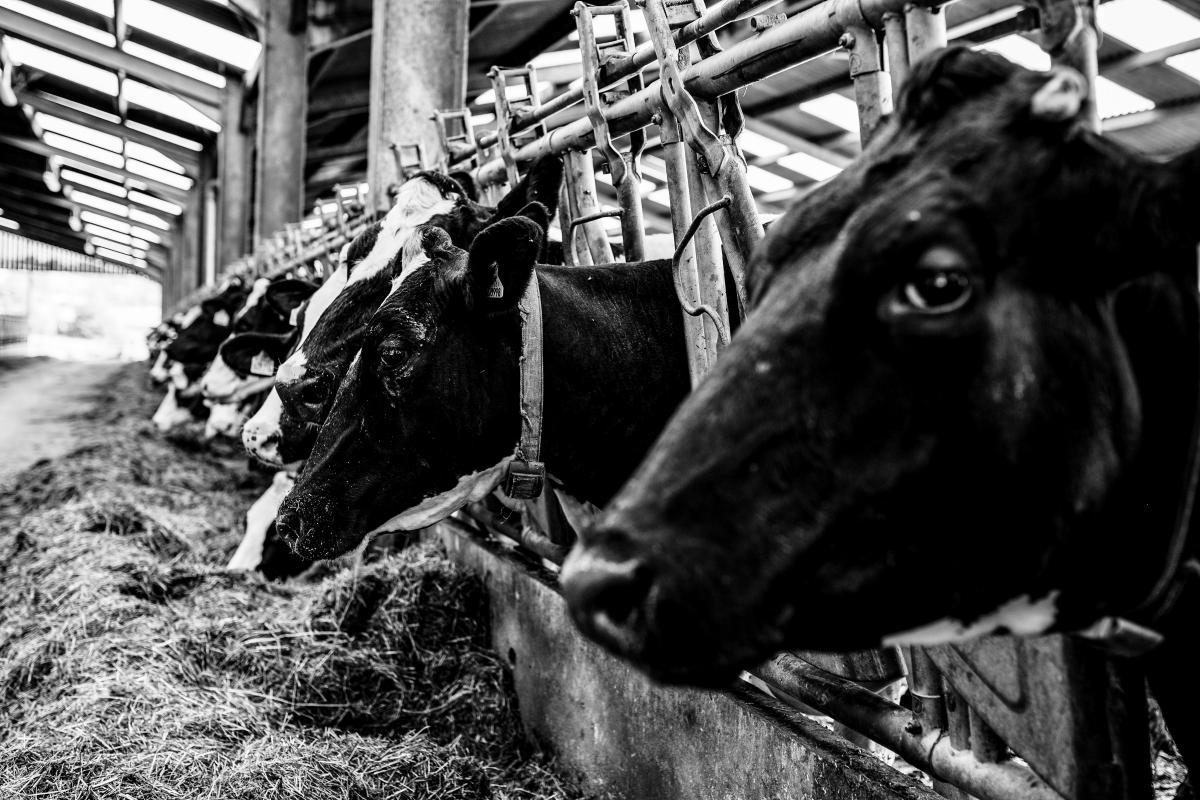Tools to improve genetic gain - Driving dairy emissions down and profit up
Part 1
Until relatively recently, artificial selection of farm animals has relied upon subjective assessments of individual appearance and crude production data, to influence selection decisions. The last 10 years however has seen a data revolution in animal breeding, spearheaded by the dairy industry where large volumes of accurate data are collected and shared for the benefit of the whole industry. In this 2 part article we will look at the data and technologies now available to UK dairy producers and the impact they can have where implemented.
Genetic data
Every milk recording herd in the country has access to genetic figures calculated for each of the animals in their herd, with highly accurate figures now being generated from a combination of parentage data, own lactation data, progeny data and genomic information. By accessing the AHDB herd genetic report, dairy producers can begin to build a picture of where the herd’s genetic strengths and weaknesses lie, and then select animals based on their genetic merit relative to other animals in the herd.
Genomic testing
Genomics is a technology the bull studs have been making the most of for almost 15 years and is rapidly gaining momentum as a tool to help farmers select young females with no production records. There are multiple benefits to genomic testing youngstock at an early age but primarily we are gaining accurate figures in order to rank and sort animals by genetic merit.
Genetic traits for efficiency
Over the last few years we have seen a race by companies and organisations looking to produce feed efficiency and methane reduction traits. There are now at least 5 variations on feed efficiency available, with more appearing all the time. Whilst this is all good news and exciting to hear, we must ensure that we are selecting for traits that are relevant and accurate for the population of animals, farm setup and diet we are working with. We must then select for these alongside all of the other traits that still matter, such as production, health, fertility, calving ease etc. Efficiency traits are generally looking to identify those cows that will produce more whilst eating less, however there are significant differences in how they calculate/estimate those figures.
Breeding indexes
Breeding indexes such as £PLI (Profitable Lifetime Index) and DWP (Dairy Wellness Profit) are designed to take the hard work out of selection. These indexes aim to rank animals based on; profitability, health, fertility, and increasingly on efficiency traits mentioned above. By selecting high index bulls, heifers and cows to produce the next generation, we are maximising our chances of having a more profitable and efficient set of heifers calving down in 3 years’ time.
Sexed semen and Advanced breeding
The rise of reliable, highly fertile sexed semen over the last 20 years has revolutionised the selection pressure on farm, allowing farms to be much more selective as to where the next generation of heifers comes from. Taking this another step further is the use Embryo Transfer and In Vitro Fertilisation (IVF). Whilst Embryo transfer has been practiced for a long time in the UK, it’s application on dairy farms has been limited, mainly due to the requirement for an empty uterus and the length of time it takes to flush and return to normal cyclicity. Now, with IVF, we are able to collect from any cow or heifer so long as they are no more than 4 months in calf. There are also fewer stimulation jabs needed and collections take as little as 45 minutes. Collections can be done from the same animal once a month with an average of 4-5 embryos generated per collection using sexed semen. By selecting the very best genetic heifers as donors and implanting embryos in the poorer genetic merit animals, we can increase the rate of genetic progress considerably. Genetic outliers with index values much higher than the herd average are the ones to select here.
In the second part of this article we will look at how we can use the tools discussed above in a practical way on farm.
If you would like to find out more about anything discussed here, or for support improving your herd’s genetic selection, please do give us a call at the practice on 01453511311 or Josh direct on 07398110584.